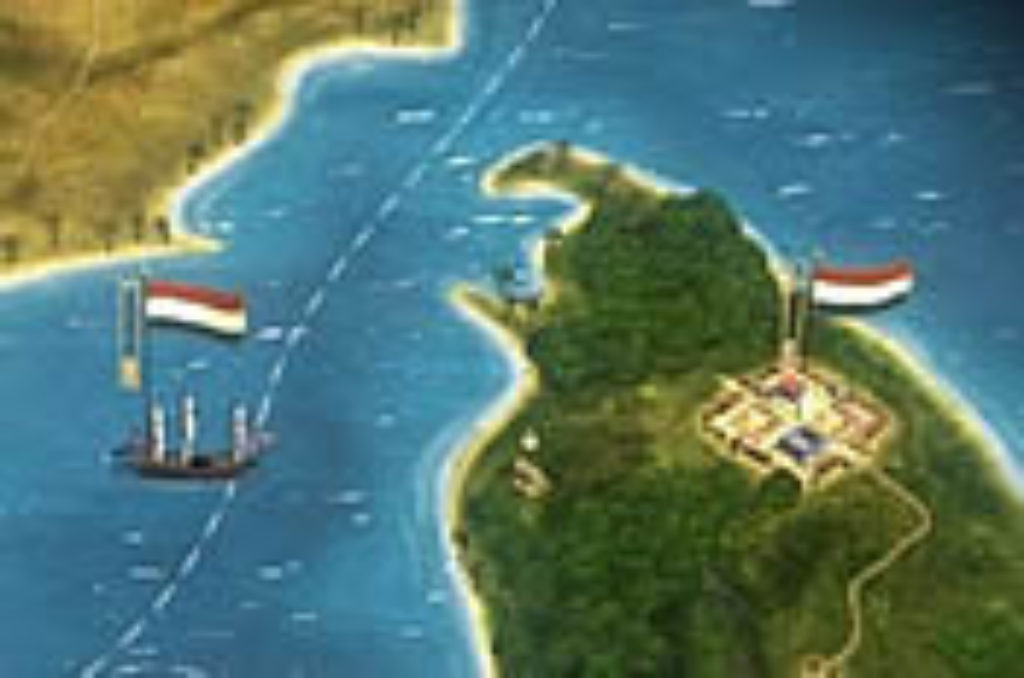
Video games are the Rodney Dangerfield of the entertainment world. And sometimes—when they’re digitally inviting kids to shoot cops or puree Grandma’s cat—they deserve every disrespectful frown and growl they get. But there’s an often overlooked gaming fact: They can be good for you, too.
(OK. Don’t let your jaw drag on the ground for too long.)
A number of studies have suggested that video games can be fabulous teaching tools. Not only do they entertain and instruct players with sights and sounds, but they challenge them with hands-on activity and repetitive brainstorming. In classrooms across the country, electronic games are slowly showing up as new ways of teaching problem solving and critical thinking.
Empire: Total War is one PC game that would feel right at home amidst serious reading, writing and arithmetic. This is the fifth entry in the Total War series of real-time strategy games, and, I think, the best one yet. It’s a broad and engrossing game that pulls you into the world-building strategies and musket battles of the 18th century.
Choose Your Flag
There are two campaigns included in Empire. The smaller, called The Road to Independence, takes gamers to the Americas—from the settling of Jamestown through the French and Indian War to George Washington’s rise to prominence and the United States’ eventual break from English rule. This section will only take a handful of hours to play, but it’s a great way to learn how the game’s land and sea mechanics work. And it’s a fun brush up on bits and pieces of American history (covering the parts you probably missed in ninth grade while doodling in the margins of your text book or staring out the window).
Once you’ve got the knack of things (built-in game advisors help get you up to speed) you can move on to the Grand Campaign, which lets you choose from a variety of world powers, such as the British, French or Ottoman empires, and try your hand at creating the most dominant global powerhouse of the 1700s.
And if you’re thinking that this is all about moving little groups of troops around, you’re not thinking big enough.
In fact, at first glance the scope of what’s required of you in this game seems overwhelming. You must explore new territories, found colonies, manage the economics of settlements, orchestrate political connections and interactions, use religion to encourage the people and then, ultimately, gather your troops and ships for land and sea conquests—all in a turn-based system that gives your AI opponents an equal chance to shore up their designs against you.
Set Your Course
So will you focus on your country’s industry and strengthen infrastructure to create an economic stranglehold on the opposition? Or push for huge world-crunching armies? Will you blockade enemy harbors with your naval might? Or send in spies to steal their newest technologies? Can diplomatic measures quell a hostile government? Or will your proselytizing preachers change a community’s mindset? Perhaps you’ll devise a mixture of all of the above. The choices and strategies are myriad.
Of course, the game is called Total War, so strategies on the battlefronts are always a part of things, even when you choose to walk down other paths. On land, players have access to 18th century armies consisting of a variety of units, such as musketeers, riflemen, cavalry and artillery. Each has its own advantages, cost and level of effectiveness. Placement of troops on the terrain, use of camouflage or nearby buildings, weather conditions and even the troops’ morale will impact the eventual outcome.
On the high seas, players control up to 20 ships that vary in class, armament and crew. Maneuvering those multiple-masted wonders to take out foes can be a pulse-pounding experience as you call for fleet formations, boarding parties and different ammunitions in the heat of battle. For example, if sailors wish to board they can slow down the enemy vessel with sail-ripping chain shot. Grapeshot, on the other hand, will take out the crew and lengthen the enemy’s reload time.
As is the case with most RTS games, these engagements are viewed from an on-high point of view. So the screaming/gurgling/dripping side of war is avoided. And even if you choose to zoom in on the skirmishes, the men fall bloodlessly when shot.
Broken Swords
I did encounter a couple of problems while playing Empire. One came in the form of a few technical glitches that pop up frustratingly from time to time. Finding a gaggle of troops wandering aimlessly in the woods or failing to engage even if they do hit the mark you set can be irritating. And play did freeze up on me in the heat of a couple battles.
Another problem with this immersive title? It’s a very immersive title. Once you dive headlong into blockading ports, building colonies and choosing allegiances in a widespread revolution … it’s kind of hard to put your tri-cornered hat and powdered wig away for the night.
But it’s doable. And in manageable bites, Empire: Total War is quite an epic adventure, er, I mean, learning experience.

After spending more than two decades touring, directing, writing and producing for Christian theater and radio (most recently for Adventures in Odyssey, which he still contributes to), Bob joined the Plugged In staff to help us focus more heavily on video games. He is also one of our primary movie reviewers.